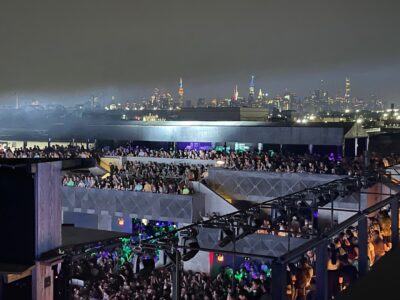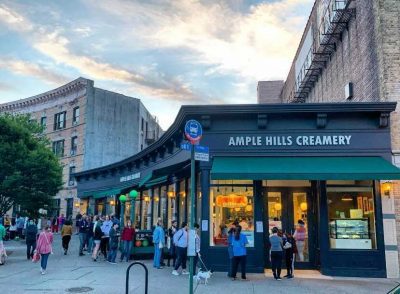Photo illustration by Johansen Peralta
Councilwoman Shahana Hanif on accessibility, representation and her historic win
The first female Muslim city councillor, Hanif joins 'Brooklyn Magazine: The Podcast' to discuss her path—and her first month on the job
Like what you’re hearing? Subscribe to us at iTunes, check us out on Spotify and hear us on Google, Amazon, Stitcher and TuneIn. This is our RSS feed. Tell a friend!
Shahana Hanif was politicized early in her life. The child of Bangladeshi immigrant parents, Hanif was just 10 years old on September 11, and came of age during a time of increased daily discrimination against people who looked like her—not to mention institutional profiling and discrimination of the Muslim community in general.
“The Brooklyn I know is [when I was] 10 years old, 9/11 happens and literally living the rest of the years to come with this fire to make a better democracy,” says Hanif. “Of course when I’m 10 I wasn’t able to think of the big picture, but I recognized that being Muslim meant something to many people.”
Born and bred in Kensington, where she still lives today, Hanif herself means something to a lot of people. She is the first female Muslim city council member, representing District 39, a swath of Brooklyn that is both gentrified and gentrifying. Her district includes the neighborhood where she grew up as well as Borough Park, Windsor Terrace, Park Slope, Gowanus, Carroll Gardens, Cobble Hill, and the Columbia Waterfront.
She joins a city council that is both barrier-breaking and historic for its diversity: it is the first majority-female class, and includes the largest contingent of Asian American members in history.
“Many of our wins in this new cohort are catalysts for our communities that have not shown up in droves to vote,” says Hanif, who is this week’s guest on “Brooklyn Magazine: The Podcast.” “We worked really hard to bring out the Bangladeshi vote. Eligible voters. But it is so tough because in the past 30 years of this community growing here candidates have not come out to say hey, ‘I am running for X. I want your support. Here’s what it’s going to look like.’”
Prior to the election, Hanif was the director of organizing and community engagement for former Councilman Brad Lander, whose seat she now holds. Lander is now the city comptroller and Hanif, who is one month into her new role, was appointed to chair the city’s immigration committee last week.
The goal there, she says, is to “bring our community together around issues that impact working families across issues not just specific to their immigration status but around education issues, around healthcare, domestic violence and so many other things.”
She has already been a vocal advocate for police reform, for food delivery workers, who she is helping to organize, and for more accessibility in public spaces, including better cycling conditions. She opposed the Gowanus rezoning plan that passed in November, even though her former boss was a vocal proponent, because she felt public housing residents were left out of the conversation.
“I was against it for good reason. Right now the city’s housing model is entirely real estate driven,” she says on the podcast. “I don’t want public housing residents to be excluded and all housing development has come at their expense. We continue to build without renovating and without providing NYCHA residents with basic, basic amenities and dignified housing conditions.”
And although she is young (she’ll turn 31 this week), the road to city hall was hardly a cakewalk. At 17 she was diagnosed with the chronic autoimmune disease lupus, which disproportionately affects Black and brown women, and would over time galvanize her to become interested in community infrastructure and organizing. For example, Hanif belongs to the Bangladeshi Feminist Collective, a group engaged in dialogue around Bangladeshi feminist movements and advocacy for women in her community.
“We cultivated something to really bring us together and to create something that offers care, compassion and this radical sisterhood because over the years many women have left the city,” she says. “Many women have left the neighborhoods they were raised in because our neighborhoods did not hold us.”
She would have been one of them herself if it weren’t for lupus, she says.
“I always wanted to leave Brooklyn,” she says on the podcast. “I always wanted to leave because the neighborhood did not have me in mind around our park spaces, around our open spaces, no youth centers, after school programming that would get slashed annually … Lupus did that. Lupus was like, ‘Your ass is sitting right here. You’re not going anywhere.’”
And as long as she’s here, she seems intent on doing something about it.
Check out this episode of “Brooklyn Magazine: The Podcast” for more from Hanif. Subscribe and listen wherever you get your podcasts.
You might also like 


























